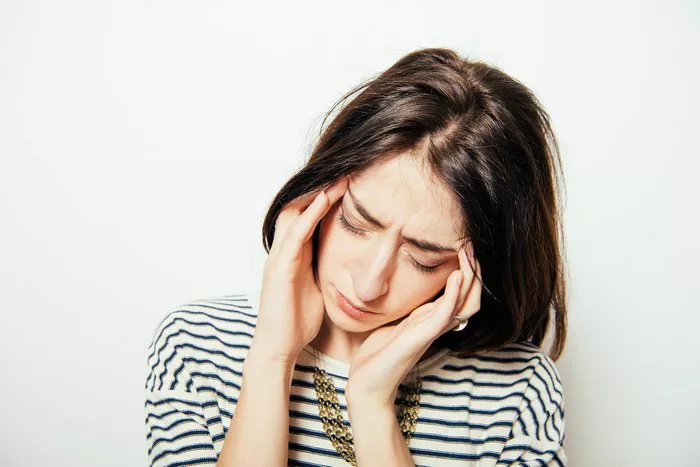Depression is a complex and challenging condition that affects millions of people worldwide. While medication can be an important component of treatment for many individuals, it’s not the only solution. In fact, there are numerous evidence-based approaches that can complement or even substitute pharmaceutical interventions. From lifestyle changes to various therapies and alternative treatments, a holistic approach to mental health offers a diverse toolkit for managing depression. In this article, we’ll delve into these alternatives, providing practical tips, resources, and encouragement for those seeking relief from depression beyond medication.
1. Validate their feelings and concerns:
Acknowledging the challenges of depression is the first step in fostering empathy and trust. It’s essential to recognize that seeking alternative approaches is valid and may be the right choice for some individuals. Many people have concerns about medication, ranging from worries about side effects to fears of dependency. By addressing these common concerns with understanding and compassion, we can create a supportive environment for exploring other options.
2. Emphasize a holistic approach:
Mental health is not just about brain chemistry; it encompasses physical, emotional, and social well-being. Treating depression requires addressing underlying issues and developing healthy coping mechanisms. A holistic approach recognizes the interconnectedness of these aspects and seeks to improve overall quality of life.
3. Provide a diverse range of evidence-based options:
Lifestyle Changes:
Exercise: Regular physical activity has been shown to have mood-boosting effects by releasing endorphins and reducing stress hormones. Encourage activities that the individual enjoys, whether it’s walking, dancing, or yoga.
Nutrition: The link between diet and mental health is increasingly recognized. Encourage a balanced diet rich in fruits, vegetables, whole grains, and lean proteins, while minimizing processed foods and sugars.
Sleep Hygiene: Quality sleep is essential for mental health. Offer tips for improving sleep hygiene, such as maintaining a regular sleep schedule, creating a relaxing bedtime routine, and avoiding screens before bed.
Stress Management Techniques: Mindfulness, meditation, yoga, and deep breathing exercises can help reduce stress and promote emotional well-being. Encourage the practice of these techniques regularly to build resilience.
Therapies:
Cognitive Behavioral Therapy (CBT): CBT helps individuals identify and change negative thought patterns and behaviors. It’s a practical, goal-oriented approach that empowers individuals to develop healthier coping strategies.
Interpersonal Therapy (IPT): IPT focuses on improving relationships and social support. By addressing interpersonal issues and communication skills, it can alleviate symptoms of depression related to interpersonal conflicts or loneliness.
Alternative Treatments:
Acupuncture: Acupuncture may offer benefits for reducing stress and improving mood. While more research is needed, some individuals find it helpful as part of their depression treatment plan.
Light Therapy: Light therapy is particularly effective for seasonal affective disorder (SAD), a type of depression that occurs seasonally, usually in the winter months. Exposure to bright light can regulate mood and energy levels.
Art therapy, music therapy, and nature therapy: These creative and experiential therapies offer alternative ways of expressing emotions and promoting relaxation. Engaging in artistic or nature-based activities can be therapeutic for individuals with depression.
4. Offer Practical Tips and Resources:
Encourage actionable steps that individuals can take immediately to improve their mental health, such as starting a gratitude journal, practicing mindfulness exercises, or reaching out to a friend for support.
Provide links to reputable organizations, websites, and helplines where individuals can find more information and support related to mental health and specific therapies.
Encourage consultation with a healthcare professional for personalized guidance and support. While exploring alternative treatments, it’s important to do so under the guidance of a qualified professional who can provide tailored recommendations and monitor progress.
5. Use a clear, compassionate, and accessible tone:
Avoid medical jargon and present information in a way that is easy to understand and digest. Empathize with the struggles of depression and offer words of encouragement and hope throughout the article.
Conclusion
In conclusion, while medication can be an effective tool in treating depression, it’s not the only option. By adopting a holistic approach that includes lifestyle changes, therapies, and alternative treatments, individuals can empower themselves to manage their depression and improve their overall well-being. Remember, there is hope and support available, and it’s okay to explore different paths to healing.
FAQs
What is an alternative to depression medication?
Alternative therapies to depression medication include psychotherapy, exercise, mindfulness practices, and dietary changes. Some people find relief through acupuncture, yoga, or herbal supplements like St. John’s Wort. It’s important to consult with a healthcare professional before trying any alternative treatment.
What is the best natural antidepressant?
Exercise is often considered one of the best natural antidepressants. Physical activity releases endorphins, chemicals in the brain that act as natural mood lifters. Additionally, spending time in nature, maintaining a healthy diet rich in omega-3 fatty acids and vitamins, and practicing relaxation techniques can also help alleviate symptoms of depression.
What is the world no 1 antidepressant?
There isn’t a single “world no 1” antidepressant as effectiveness can vary depending on individual factors. However, selective serotonin reuptake inhibitors (SSRIs) like Prozac (fluoxetine) and Zoloft (sertraline) are commonly prescribed and widely regarded as effective first-line treatments for depression. Always consult with a healthcare professional to determine the most suitable medication for your specific needs.
Related topics:
- Are Constant Headaches a Sign of Depression?
- Is Constant Tiredness a Sign of Depression?
- Can Depression Be Diagnosed by Blood Test?


